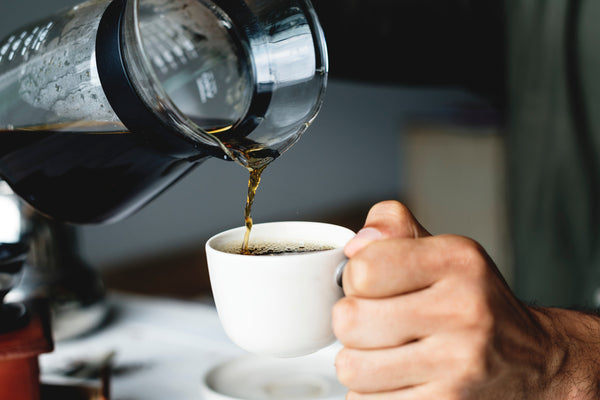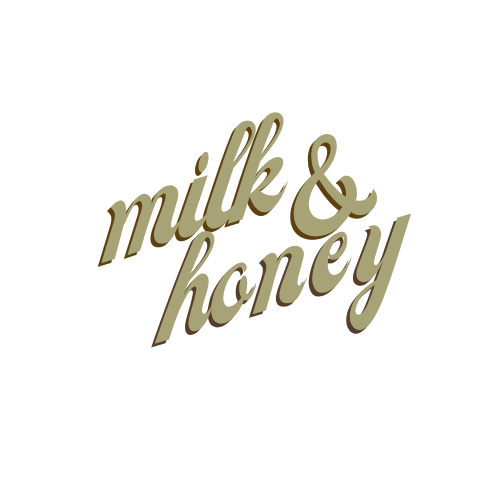
Does Coffee Taste Better with Filtered Water?
Share
TLDR:
Yes, coffee does taste better with filtered water. Using filtered water removes impurities that can interfere with flavor, enhances the coffee's natural taste, and protects your brewing equipment—all leading to a cleaner, more consistent, and more enjoyable cup.
Why Water Quality Matters for Coffee

At Milk & Honey Coffee Co., we've brewed thousands of cups and served every kind of coffee enthusiast—from casual sippers to purists. One common thread we’ve observed? The quality of water always affects the final brew.
Your coffee is over 98% water. If the water tastes off, so will your coffee. That’s why understanding the role of water isn’t optional—it’s essential. If you're curious about how specific factors affect your brew, explore the Impact of Water on Coffee Flavor to see why even small differences in water chemistry can change the entire cup.
What’s in Your Water?
Tap water may seem harmless, but here’s what’s lurking in it:
-
Chlorine – Adds a chemical taste and aroma
-
Heavy metals – Like lead or copper from pipes
-
Microplastics – Microscopic particles you can’t see or taste directly but still affect clarity
-
Limescale – High calcium and magnesium levels that interfere with extraction
Even clean municipal water can fluctuate based on weather, treatment schedules, and plumbing.
The Role of Minerals in Flavor (TDS & pH Balance)

Not all minerals are bad. In fact, some are crucial for extracting flavor:
-
Calcium and magnesium help carry the coffee oils and acids into your cup
-
Total Dissolved Solids (TDS) between 75–250 ppm is considered ideal
-
pH level between 6.5 to 7.5 allows balanced extraction
Filtered water (not distilled) often retains the beneficial minerals while eliminating what doesn't belong.
Tap, Filtered, or Distilled Water?

Tap Water
Pros:
-
Convenient and free
-
Contains some beneficial minerals
Cons:
-
Varies in quality by location
-
Often contains chlorine, sediment, or metals
-
Affects flavor unpredictably
Filtered Water
Types:
-
Carbon filters (like Brita): Great for taste and smell
-
Reverse Osmosis (RO): Removes nearly all particles
-
Ion Exchange Filters: Target hard minerals for scale control
Pros:
-
Removes harmful impurities
-
Retains flavor-enhancing minerals (if not RO)
-
Improves brewing consistency
Cons:
-
Needs regular maintenance
-
RO systems may strip away too much (you may need remineralization)
Distilled Water
Why it’s a not ideal for coffee:
-
Lacks all minerals
-
Can make coffee taste flat or hollow
-
Can damage coffee machines over time by leaching metals from components
Brewing Effects: Taste, Aroma, Extraction

You can think of unfiltered water as “muddying the signal.” Clean water lets coffee shine, but finding the right coffee ratio is just as important for achieving balance in taste and extraction.
What Filtered Water Brings to the Cup:
-
Brighter aromas
-
Clearer flavor notes
-
Smoother body
-
Better balance between acidity, sweetness, and bitterness
Using filtered water helps extract coffee compounds evenly, meaning fewer sour or bitter notes and more of what you actually want—nuance, depth, and smoothness.
Does Filtered Water Affect Brewing Temperature?

Yes. Minerals in water impact thermal conductivity, affecting how water heats and maintains temperature. Filtered water allows for:
-
More stable brew temperatures (ideal for extraction: 195°F–205°F)
-
Improved saturation during blooming phase
-
More even coffee bed coverage
These small changes have big flavor implications.
Equipment Longevity and Maintenance

At Milk & Honey Coffee Co., we’ve seen countless machines ruined by scale. Filtering your water is a long-term investment in your gear.
How Scale Hurts Your Equipment:
-
Clogs lines and heating elements
-
Reduces heat efficiency
-
Shortens machine lifespan
Preventative Steps:
-
Use filtered water to reduce scale buildup
-
Descale monthly if using hard water
-
Replace filters every 2–3 months (or follow manufacturer recommendations)
Choosing the Right Filtration System

The right filter depends on how you brew.
For Manual Brewers (Pour-Over, Chemex, Drip):
-
Carbon pitcher filters (like Brita) work well
-
Compact and affordable
-
Improve flavor clarity noticeably
For Espresso Machines:
-
Inline filtration or RO systems highly recommended
-
Prevent internal scale and pressure inconsistencies
-
May require mineral cartridge if using RO
For Cold Brew:
-
Less affected by heat sensitivity, but still benefits from:
-
Cleaner extraction
-
Longer shelf life
-
Less oxidation
-
Cleaner extraction
How to Test Your Water at Home

You don’t need lab equipment—just a few tools:
-
TDS meter – Measures mineral content (aim for 100–150 ppm)
-
pH strips or meter – Aim for 6.5–7.5 pH
-
Taste test – If your water tastes weird alone, it’ll taste worse brewed
Tip: Compare your tap, filtered, and bottled water side-by-side with the same coffee beans. The difference is often shocking.
Filtered Water Across Brewing Methods

Pour-Over / Drip:
-
Requires water to evenly saturate grounds
-
Filtered water ensures even flow and flavor balance
Espresso:
-
High pressure amplifies any impurities
-
Filtered water prevents inconsistent shots and bitter aftertastes
Cold Brew:
-
Long steeping time makes it vulnerable to off-flavors
-
Filtered water keeps the taste clean and smooth
Questions About Coffee Water Quality
Can I use spring water instead of filtered?
Sometimes. Check its mineral content. Too high = scale; too low = flat taste.
What about mineral packets?
Good option if using RO or distilled water. Brands like Third Wave Water add optimal mineral ratios back in.
How often should I clean my machine if I don’t filter?
At least monthly. More often if you brew daily and live in a hard water area.
Filter Coffee Benefits You Can Taste

Filtered water isn't just a nice-to-have—it’s a foundational element of good coffee. At Milk & Honey Coffee Co., we’ve made the switch in every brewing method we offer, and the results speak for themselves:
-
Brighter cups
-
More consistent flavor
-
Longer-lasting machines
-
Satisfied customers who can taste the difference
If you're serious about your daily brew, start with what makes up most of it—the water. Test yours today, choose the right filter, and let your coffee shine the way it was meant to.
